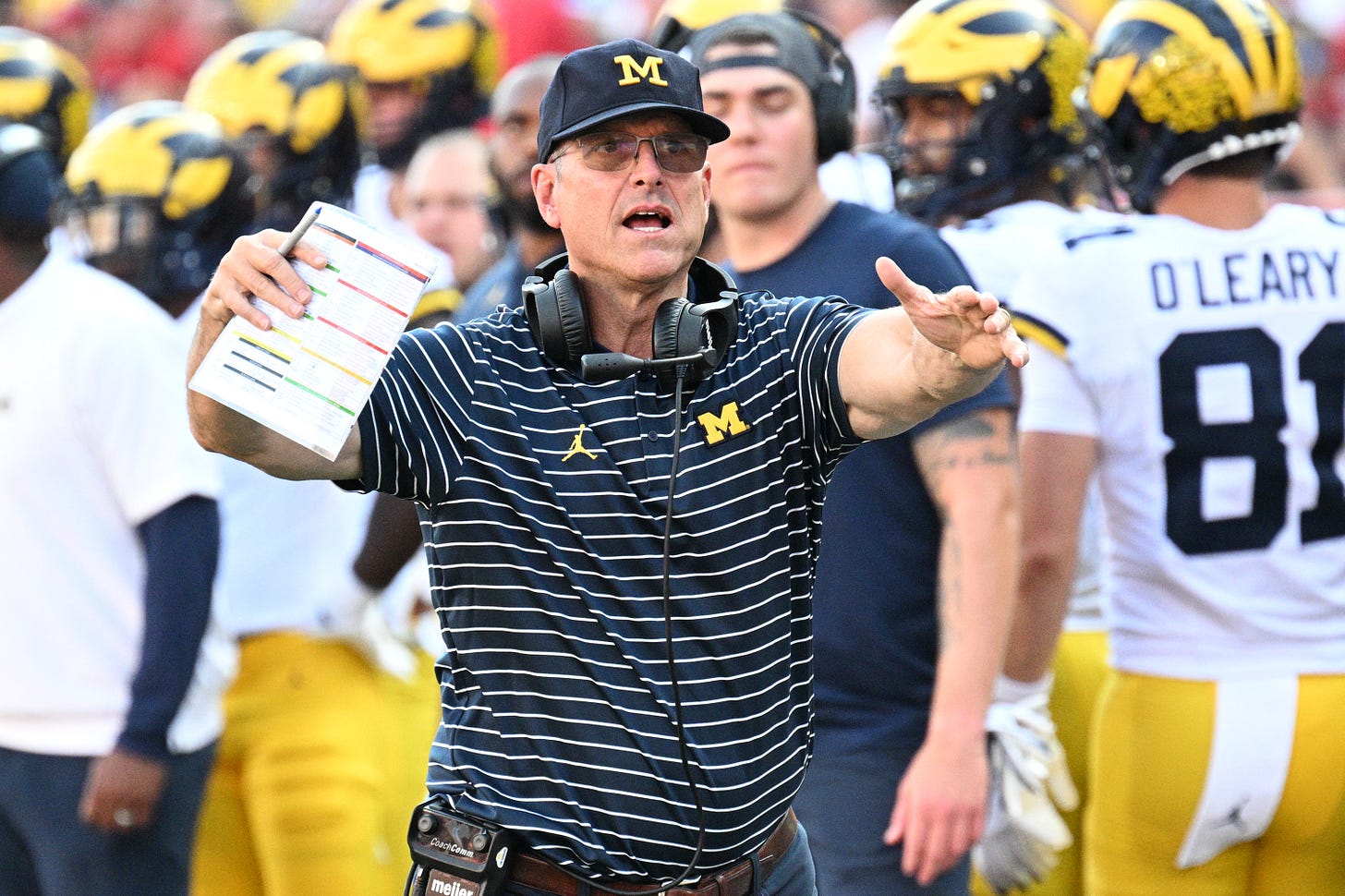How far did Michigan go to gain an edge? The answers from Big Ten coaches are telling.
An NCAA investigation into alleged violations related to sign-stealing has cast a dark cloud over the Wolverines and coach Jim Harbaugh, who find themselves at the center of yet another scandal.
The email subject line was innocuous enough: Michigan Football Site Visit.
The contents? A little fishy.
A Michigan staffer had requested a tour of another Big Ten staffer’s stadium a few years ago, saying that he was in charge of the Wolverines’ site visits for the following season. But he had requested to visit the venue on a game day, saying that it would help him better understand the logistics for when Michigan played there.
The recipient’s guard was up, and he informed the Michigan staffer that it would be illegal for him to visit then.
That was that, at least until Thursday, when the Big Ten announced that the NCAA had informed the conference and Michigan itself that it was investigating allegations of sign stealing by the Wolverines’ football program.
Was that email simply a naive mistake by a low-level staffer? Or is it a sign of just how far — and how long — Michigan would go to bend the rules under ninth-year coach Jim Harbaugh?
The bombshell NCAA news, initially uncovered by Yahoo! Sports, has led to a mix of frustration, relief and eye-rolls inside and outside the Big Ten.
To what length did Michigan go to gain an edge? How prevalent are such tactics around the sport? What kind of impact does such information have on the games themselves?
The Inside Zone spoke to a half-dozen current and former Big Ten coaches on Thursday after the news broke to get a better understanding of the severity of the situation.
Three of those coaches had already faced Michigan this season. Not one was surprised by the news. The No. 2 Wolverines are 7-0, have been favored by at least 17.5 points in every game and have won each contest by at least 24 points, so any advantage against the crop of competition so far would appear to be minimal, and unnecessary. But that doesn’t mean that it didn’t make a difference.
“We were told a while ago that that’s what they do,” said a coach who faced Michigan this season. “We actually heard they were sending people to games, so what we did is we literally changed everything. We went back to our old signals and things like that. I don’t know if people could see it in the game, but when we would come off the field we would send in the call with the substitution guy, so that we didn’t signal, because we knew that they did that.”




